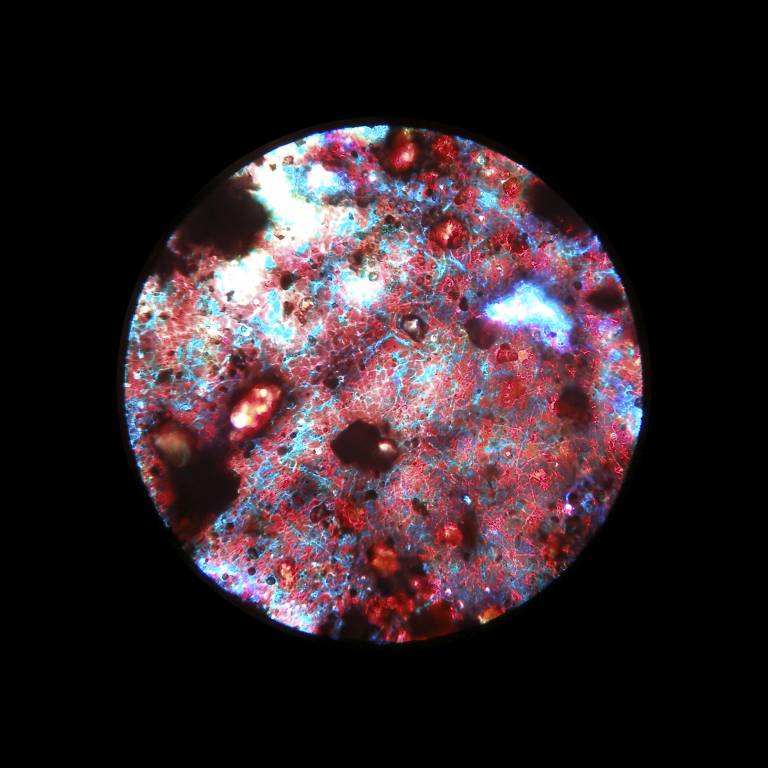POSTPONED - NEW DATE TBA. IAS Waste: The aesthetics and Care of the Soil in the Urban Environment
17 March 2020, 6:00 pm–8:00 pm

Unfortunately, due to the ongoing Covid-19 crisis, events will be postponed until the summer and autumn terms. We are very sorry for any inconvenience this may cause. with Maria Puig de la Bellacasa (Centre for Interdisciplinary Methodologies, University of Warwick), Daro Montag (Falmouth University), Richard Reynolds (Guerrilla Gardening) and Lucia Pietroiusti (Serpentine Galleries). Chaired by Albert Brenchat-Aguilar (Birkbeck/Architectural Association)
This event is free.
Event Information
Open to
- All
Availability
- Yes
Cost
- Free
Organiser
-
Albert Brenchat
Location
-
IAS Common GroundGround floor, South Wing, UCLLondonWC1E 6BTUnited Kingdom
Unfortunately, due to the ongoing Covid-19 crisis, events will be postponed until the summer and autumn terms. We are very sorry for any inconvenience this may cause.
In the built environment, soil is not only polluted but also privated of water and neglected behind layers of soil subproducts. The urban environment avoids soil as it is dirty, a waste of walkable space, a patch where plants should spring up and do not, or an opportunity to speculate with the value of what can come on top of it. To soil is to stain, physically and morally.
This panel presents poetic engagements with soil that look beneath the surface: soil as an organism made of decaying and life-giving matter, and as a superorganism containing myriads of organisms. It also aims to politicise new materialist approaches of soil: who works with soil in construction, who lives in brownfields or get beneath the urban surface to live or maintain our infrastructures.
This panel presents two poetic engagements with soil-human relations from the Arts & Humanities and responses from the practices of gardening and ecological sciences. This proposal is part of the series Transformative Decay: politicising new materialism from waste in the built environment, supported by the Octagon Fund and the Institute of Advanced Studies.
Transformative Decay: Politicising new materialism from waste in the built environment
Decaying matter is an essential component of our built environment. From compost in our parks to food waste in our homes, to lichens and fungi in our brick walls, stone walls and tile roofs, to bacteria on our skin, our environment grows thanks to and along with non-human decay. However, we neglect these non-human agents. We hide the compost heap in a corner of the garden, we produce nanotechnologies for ever-clean ceramic tiles and wash our hands with antibacterial soaps. We sterilise our built environment thus polluting it with toxic antibacterial matter.
Amongst many reasons for this is our struggle to accept that we need, and are part of, non-human agents. To ignore decaying matter also means to neglect the human workforce, for the most part, women – for the most part, Black – for the most part working class - …, that physically deal with decay and the organisms that support it. This proposal aims to change all these perceptions.
We propose 6 topics:
- Soil: the aesthetics and care of the earth and the soil
- Compost: the compost heap, its critters and feminist alliances
- Weeds: wastelands where weeds and humans coexist; the applications of decaying weeds
- Skin: the biodiversity of the skin; bacteria and health; the skin of the architecture: tiles and other surfaces
- Matter: disintegration, rotting, fermenting; decomposition, generation and regeneration
- Fluids: bodily fluids, from decay or otherwise
All welcome. Please note that there may be photography and/or audio recording at some events and that admission is on a first come first served basis. Please follow this FAQ link for more information. All our events are free but you can support the IAS here.
Image: Daro Montag, This Earth 9
 Close
Close

